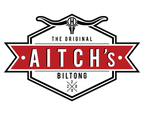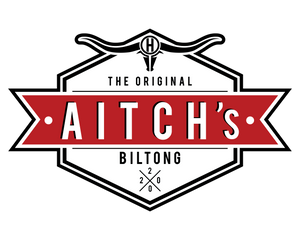Biltong vs. Beef Jerky: What’s the Difference?
When it comes to dried meat snacks, biltong and beef jerky are often thought to be similar. However, despite their similarities, these two snacks are quite different. Let's dive into what makes biltong and jerky unique and explore their differences in more detail.
What is Biltong?
What is Beef Jerky?

Beef jerky, on the other hand, is a popular dried meat snack, particularly in the United States. It is typically made from thin strips of lean meat that are marinated in a mixture of spices and other flavorings before being dried, often through smoking or dehydrating at higher temperatures. This results in a chewy and firm texture that is consistent throughout the product.
Biltong vs Beef Jerky
1. The Cut
- Biltong: Biltong is more versatile in the choice of cut that can be used, from lean to fatty. This variety provides a wide range of flavors and textures, making each bite a unique experience.
- Jerky: Jerky primarily uses very thin cuts of lean meat, contributing to its drier texture and quicker drying time. The uniform thinness ensures a consistent chewiness.
2. The Thickness
- Biltong: Biltong is cut into substantial slabs, sometimes up to 20mm thick. This thickness allows the meat to retain more moisture during the drying process, resulting in a tender and delicious snack.
- Jerky: Jerky is characterised by its thin and uniform slices, which are dried to achieve a chewy and firm texture. While convenient, these thin slices may lack the tenderness and flavour complexity found in thicker cuts of biltong.
3. The Drying Process
- Biltong: Biltong undergoes a slow and controlled drying process, air-dried at close to room temperature for 5-14 days. This gradual method helps retain the meat’s natural moisture and flavor, resulting in a tender and delicious snack.
- Jerky: Jerky is dried using methods such as smoking, air-drying, or dehydrating at higher temperatures (around 70°C) for approximately 12 hours. This rapid drying process removes moisture quickly, leading to a consistent and firmer texture.
4. The Spicing/Marinade
- Biltong: Biltong uses a simple vinegar dip and minimal spices, ensuring the natural meat flavors are prominent. The spices act as a subtle enhancement rather than overpowering the meat’s natural taste.
- Jerky: Jerky relies heavily on marinades and spices to create its flavor profile. These marinades often include a variety of ingredients like sugar, soy sauce, and Worcestershire sauce, which can add complexity but may also contain artificial additives.
5. Production Methods and Ingredients
Both biltong and jerky use dried meat as their primary ingredient, but their production methods differ significantly. Jerky is usually roasted or smoked for several hours, whereas biltong is not cooked at all. Instead, biltong is soaked in a salt-and-vinegar brine before being hung to air-dry, a process that can last up to 1-2 weeks.
The cuts of meat also differ. Jerky is almost always made from very lean cuts of beef, while biltong can be made from either lean or fatty cuts, depending on the desired outcome. Biltong is typically cut into wide, thick strips that are easier to hang, whereas jerky is thinly sliced into irregular pieces more suitable for quick drying.
6. Flavour Profiles and Textures
The different production methods and ingredients result in distinct textures and flavors. Jerky tends to have a smokier flavour due to the cooking process, while biltong is often described as meatier and less smoky.
Because jerky relies on lean cuts of meat, it has a consistent moisture content and texture. Biltong, on the other hand, offers more diverse textures, from very moist and fatty to dry and crumbly, depending on the cut of meat used.
Conclusion
Next time you're craving a dried meat snack, why not elevate your experience with Aitch's Biltong? Our traditional South African biltong, made with the highest quality ingredients, delivers an authentic and delicious taste. Explore our range of flavors and find your favourite today.





